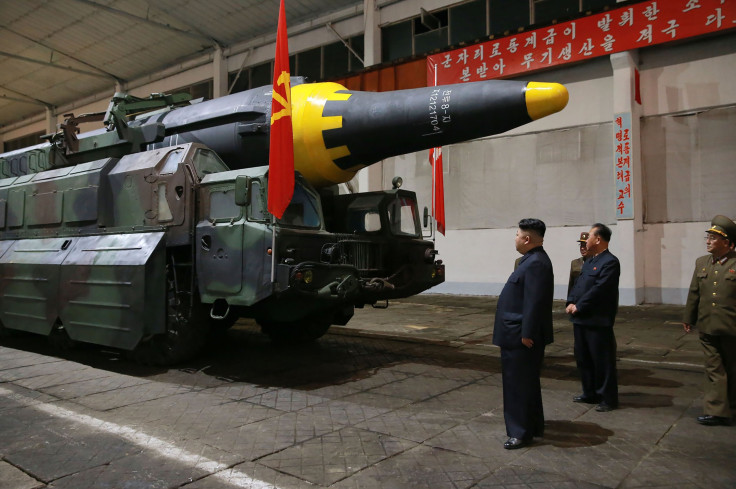Is US Preparing For War With North Korea? Nuclear Attack Response ‘Routinely Rehearsed’

The United States “routinely” rehearses its response to a potential North Korean attack, according to a top defense official. In response to a question Monday in front of the Senate Foreign Relations Committee regarding what would happen if North Korea launched nuclear missiles, Defense Secretary James Mattis said the president would have a “wide array” of options.
“The response, if that’s what you’re referring to, would of course depend on the president,” said Mattis. “Defenses will go. The president will be woken up or whatever, but our commands are … we rehearse this routinely.”
Mattis explained that ballistic missile defense forces at sea and in Alaska and California as well as radars would “do what they’re designed to do.”
Secretary of State Rex Tillerson echoed Mattis’ comments, saying the particular situation would be analyzed in such an event.
“Some judgment would be made over whether a necessary and proportionate response is required,” Tillerson said.
Tillerson and Mattis, however, both declined to rule out Monday the possibility of a nuclear first strike on North Korea.
“The fact is that no president, Republican or Democrat, has ever forsworn the first strike capacity,” Tillerson said. “That has served us for 70 years.”
The CEO of the Patriot Missile Defense System, a technology designed to detect a missile launch, track and intercept it, also said recently that the U.S. was capable of defending itself in the event of a nuclear launch by North Korea. Raytheon CEO Thomas Kennedy told CNBC in an interview last week that systems are in place to counter the threat.
“I would say relative to the North Korean threat, you shouldn’t be worried,” he said.
The U.S. also has a controversial missile defense system known as THAAD in place in North Korea. The Terminal High-Altitude Defense system aims to detect and destroy short and medium range missiles launched by North Korea before they reach their targets. The technology was decried by some, including China, as a nuclear provocation.
“The United States and South Korea and North Korea are engaging in tit for tat,” China’s foreign minister, Wang Yi, said in April. “We call on all parties to refrain from provoking and threatening each other, whether words or actions and not let the situation get to an irreversible and unmanageable stage. Force cannot solve the problem, dialogue can be the only channel to resolve the problem.”
© Copyright IBTimes 2024. All rights reserved.












